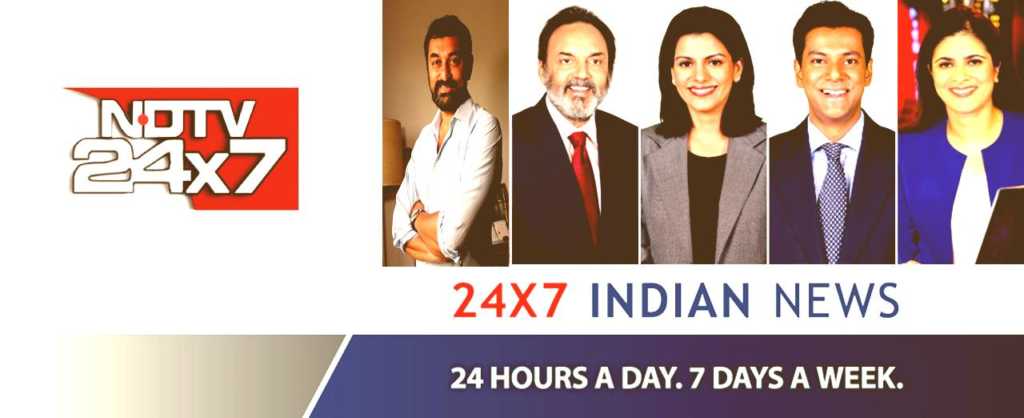Ajay Singh is often referred to as the “turnaround man”. He is known to take over fledgling organizations, change the way they think and work, and revive their fortunes. If reports are to be believed, he is now all set to take control of NDTV. NDTV is currently a much discredited, loss making and scam ridden media outlet. Will Ajay Singh manage to turn it around, or will this be his waterloo?
But as is with media outlets and their ownership patterns, the financial implications of any move in this domain generally dwarf the political implications. We must frame our question differently if we wish to analyze this acquisition further. Not whether it will be Ajay Singh’s waterloo, but what it would mean to have him at the helm of NDTV, is what we should examine.
Who is Ajay Singh, and why would he acquire a media house? Ajay Singh is a first-generation entrepreneur, who co-founded SpiceJet in 2004. He sold it to the Maran family of Sun Group for a huge profit in 2010, only to buy it back from them in 2015. The airline was bleeding back then, and within the span of a few months, he transformed it into one of the most profitable airlines in the country. During the first NDA government, Singh used to work for the national broadcaster. He was instrumental in the launch of DD Sports. But the highlight of his career was when, as part of Narendra Modi’s core team for the 2014 general elections, he coined the slogan “Ab ki baar Modi sarkaar”. This slogan was flashed on television screens, hoardings, posters and pamphlets, and played a crucial role in the BJP’s victory.
Singh’s slogan propelled the party to win a simple majority, making it the first simple majority government in decades. Three years down the line, why he would show interest in acquiring NDTV is quite clear. He is a profitable businessman, he has many years of experience in the television industry, and his political affiliations with the ruling dispensation are well-known. However, the significance of acquiring NDTV and not any other mainstream media outlet, is what sets this acquisition apart.
NDTV was the pioneer of television journalism in India. However, the network lost credibility after its biased coverage of the Gujarat riots in 2002 and the insurgency in Kashmir. Thereafter, the network was in steady decline. One of their leading journalists was caught red-handed lobbying for a ministerial berth on the behalf of a politician. During the 26/11 Mumbai attacks, the same journalist was accused of helping the Pakistani terrorists by revealing crucial details of the anti-terror operations on air. All along, the network continued its tirade against Narendra Modi, who was the Gujarat chief minister then, squarely blaming him for the riots of 2002.
The Congress Party which was in power for most of independent India’s history, had a Lutyens ecosystem that cropped up around it. Its mandate was to swing public opinion in favor of the Congress Party, and in return, it extracted several political favors. This ecosystem was made up of news-traders, self-proclaimed intellectuals, five-star activists, and fraudulent academics. With the advent of social media, the ecosystem’s monopoly over the flow of information ended. Due to NDTV’s bias coverage, untruthful rants and the emergence of the Radia tapes, NDTV was considered the cornerstone of this ecosystem.
The ecosystem continued its tirade even after Narendra Modi was elected prime minister. Despite becoming largely insignificant, despite getting battered on social media and due to social media, despite losing subscribers and viewers constantly, the ecosystem continues to shamelessly peddle its propaganda. The church attacks, the award-wapsi and Gauri Lankesh’s murder were instances when the entire ecosystem came together, spread lies and made a farce to discredit the government. Although the ecosystem stands exposed and loses a little more relevance with every new shenanigan, many supporters of the BJP have called for the party to get it over with once and for all.
A lot of the vernacular media has begun to look at the BJP government and its efforts objectively, and the advent of Republic TV has shaken up the entire English news space. Social media and alternative media remain democratic platforms, and are therefore largely sympathetic towards the BJP. The ecosystem though, despite steadily declining, was the opposition’s only fortress. Now, it looks like the walls have finally been breached. As the Lutyens ecosystem fought for survival at its peripheries, its worst enemy seems to have magically emerged in the sanctum-sanctorum.
Ajay Singh might be one of corporate India’s shrewdest brains. Watching NDTV go down in the dumps financially and face investigations for financial fraud, he might have simply spotted an opportunity and seized it.
But I’d like to believe that it is part of a larger scheme of things, to gradually rid our country of the toxic ecosystem that often makes us hang our heads in shame. If the reports are to be believed, Ajay Singh will pick up enough stake to control the network’s editorial rights. Will the ecosystem compromise, or will it run for cover? And if it runs for cover, where will it run?
